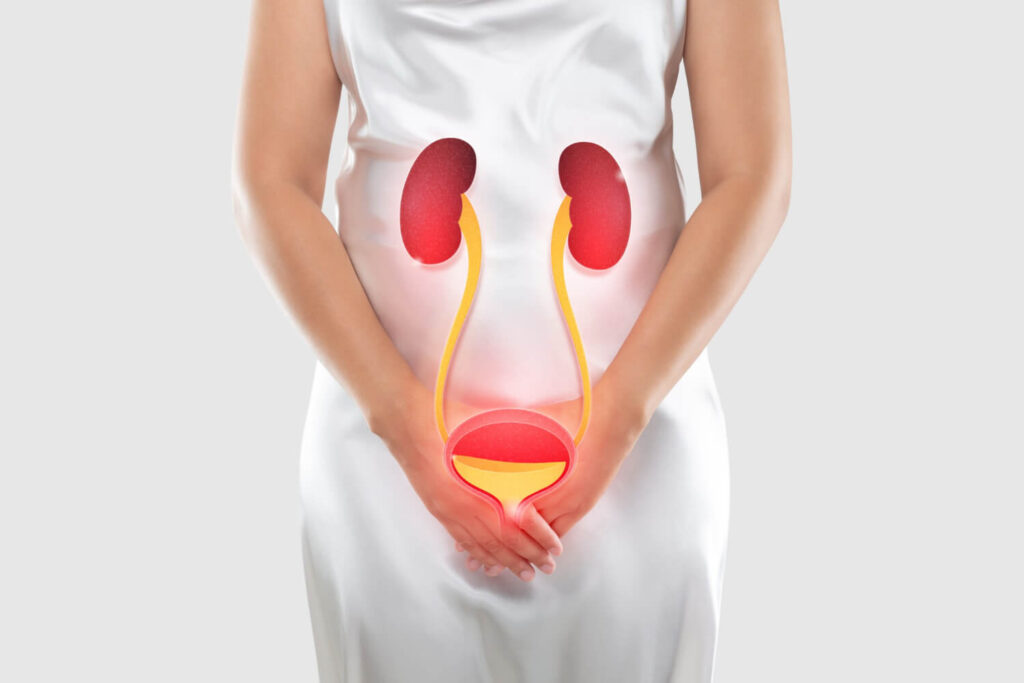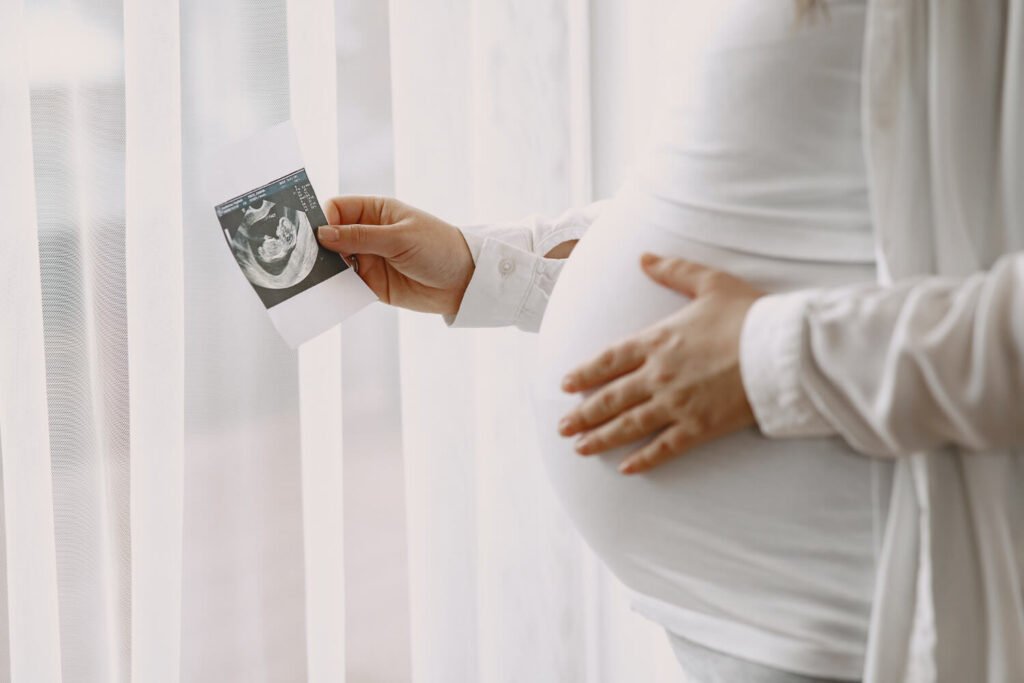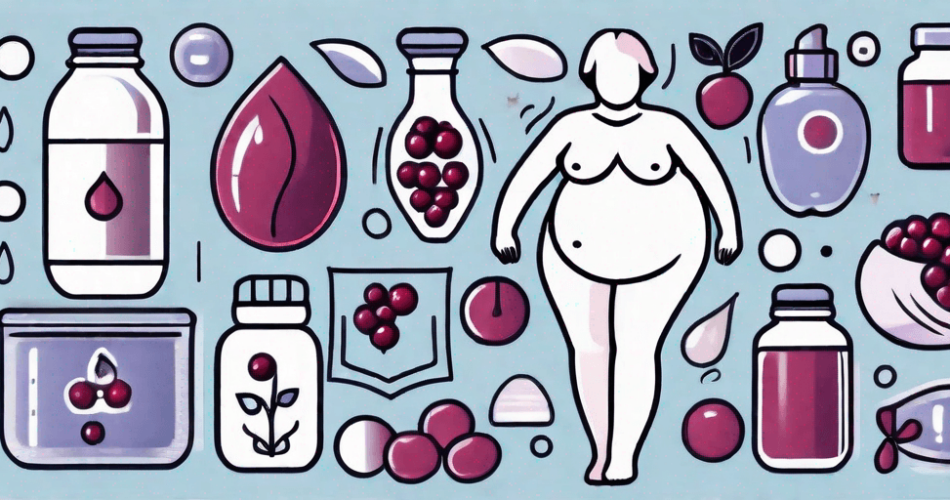UTI in pregnancy is a common concern that needs to be addressed immediately. This condition can cause discomfort and pose potential risks to both the mother and the baby. Understand how this condition can risk maternal health and the baby by identifying the common symptoms and risks. Discover every detail in this comprehensive overview for possible preventive measures and treatment options.
Understanding UTIs: An Overview

What is a UTI?
Urinary Tract Infection, or UTI, is an infection that affects any part of the urinary system. Affected parts includes the kidneys, bladder, ureters, and urethra. When it comes to understanding UTI, it’s important to know that they can occur at any age and in both males and females. However, this infection is mostly diagnosed with women.
This bacteria is usually found at the anus, which can travel at the front. It’s the anatomical design that makes women prone to this condition. Women are more likely to experience UTI due to their shorter urethra, which allows bacteria to travel to the bladder more easily. Additionally, hormonal changes during pregnancy can affect the urinary system, making pregnant women more susceptible to UTI.
A urinary tract infection occurs when bacteria or other pathogens enter the urinary system and multiply. The most common type of UTI is a bladder infection, known as cystitis. This type of infection usually starts in the urethra and then spreads to the bladder. If left untreated, the bacteria can continue to travel up the urinary tract, reaching the kidneys and causing a more severe condition called pyelonephritis.
Pyelonephritis is a serious infection that can lead to complications if not treated promptly. It can cause symptoms such as high fever, back pain, and even kidney damage. Pregnant women with UTI are particularly at risk of developing pyelonephritis, which can have adverse effects on both the mother and the baby.
UTIs and Pregnancy: A Closer Look

Pregnant women are more susceptible to urinary tract infections (UTIs) due to hormonal changes, increased pressure on the bladder, and changes in the urinary tract. The risk of developing a UTI during pregnancy is further heightened as the growing uterus can impede urine flow, making it difficult to fully empty the bladder. Additionally, changes in the immune system can reduce the body’s ability to fight off infections.
Why are Pregnant Women at Risk?
Multiple factors contribute to the increased risk of UTI in pregnant women. Hormonal changes during pregnancy can relax the muscles in the urinary tract, leading to slower urine flow and increased susceptibility to infections. The growing uterus can also put pressure on the bladder, making it challenging to completely empty it. This stagnant urine becomes a breeding ground for bacteria, increasing the likelihood of infection.
In addition to hormonal and anatomical changes, the increased levels of progesterone during pregnancy can affect the normal pH balance of the urinary tract. This alteration creates an environment that is more favorable for the growth of bacteria, further increasing the risk of UTI.
Furthermore, the increased blood flow to the kidneys during pregnancy can result in dilated renal pelvises, which can impair the normal drainage of urine and contribute to the development of UTI. The combination of these factors creates a perfect storm for pregnant women, making them more susceptible to UTI.
Common Symptoms of UTI

Identifying the symptoms of UTI is essential for prompt diagnosis and treatment. While symptoms can vary from person to person, there are some common signs to watch out for. It’s important to note that pregnant women experiencing any of these symptoms should consult their healthcare provider for further evaluation.
Here are some of the known symptoms to look out for:
- frequent urge to urinate
- burning sensation during urination
- cloudy or bloody urine
- strong-smelling urine
- lower abdominal pain
- fever
UTIs during pregnancy can increase the risk of complications, such as preterm labor or low birth weight. Therefore, it’s crucial for expectant mothers to seek medical attention if they suspect a urinary tract infection.
Potential Complications of UTIs in Pregnancy
While UTI is generally treatable, they can lead to complications in pregnancy if left untreated. This condition can progress to kidney infections, which may result in premature birth, low birth weight, or even maternal sepsis. The presence of bacteria in the urinary tract can trigger an inflammatory response that can potentially harm the developing fetus.
In addition to the direct effects on the fetus, UTI during pregnancy can also cause discomfort and pain for the expectant mother. It is crucial for pregnant women to seek appropriate treatment if they suspect they have a UTI. Prompt diagnosis and management of UTI can help prevent complications and ensure the well-being of both the mother and the baby.
Preventing UTIs During Pregnancy
Prevention is key when it comes to reducing the risk of UTI during pregnancy. By adopting healthy habits and taking preventive measures, pregnant women can minimize their chances of developing a urinary tract infection.
There are several steps that expectant mothers can take to prevent UTI in pregnancy.

Hygiene Practices to Reduce Risk
Maintaining good personal hygiene is crucial in preventing UTI. Pregnant women should ensure clean and thorough wiping from front to back after using the toilet to avoid transferring bacteria from the anal area to the urethra. This simple practice can significantly reduce the risk of infection.
Furthermore, it is advisable to wear breathable cotton underwear and avoid tight-fitting clothing that may trap moisture and promote bacterial growth. By choosing comfortable and breathable clothing options, pregnant women can create an environment that is less conducive to bacterial proliferation.
In addition to these hygiene practices, it is essential to maintain regular bathing and showering routines. Keeping the genital area clean and dry can help prevent the colonization of bacteria that may lead to UTI.
Dietary Habits for UTI Prevention
A well-balanced diet plays a significant role in the prevention of UTI. Adequate hydration is essential to flush out bacteria from the urinary system. Pregnant women should aim to drink plenty of water throughout the day, ensuring that their bodies are adequately hydrated.
Maintaining a diet that supports a healthy immune system is crucial in reducing the risk of UTI. The patient can visit a doctor for consultation to identify the suitable diet for their condition.
Safe Treatment Options for UTIs in Pregnancy
When a UTI in pregnancy occurs, appropriate treatment is necessary to prevent the infection from spreading and causing complications. It is essential to choose safe treatment options that will not harm the developing baby.
One of the most commonly prescribed treatments for UTI is antibiotics. However, not all antibiotics are safe to use during pregnancy. It is crucial for pregnant women and their healthcare providers to carefully consider the specific antibiotic prescribed, taking into account its safety profile for both the mother and the baby.
Post-Treatment: Ensuring a Healthy Pregnancy

After receiving treatment for a UTI, it is essential for pregnant women to follow up with their healthcare provider to ensure a healthy pregnancy and prevent any recurrence of the infection.
Follow-up Care and Tests
Regular follow-up care is crucial to monitor the effectiveness of the treatment and prevent any potential complications. This may involve repeat urine tests to confirm the eradication of the infection.
Your OBGYN might also recommend an abdominal ultrasound to check your kidneys to see possible damage. At the same time, undergo a pregnancy ultrasound for your baby’s health.
It is important to attend all scheduled appointments and communicate any concerns to the healthcare provider.
Maintaining a UTI-Free Pregnancy
Pregnant women can reduce the chances of experiencing a UTI by implementing healthy habits throughout their pregnancy. This includes maintaining good hygiene, staying well-hydrated, and practicing safe sex. It is essential to consult with a healthcare provider for personalized guidance on preventing UTI and maintaining a healthy pregnancy.
Final Takeaway
A progressing bacteria and hormonal changes that pregnancy brings may result to further complications such as UTI. This condition is a threat to both the mother and baby. That’s why understanding the involved warning signs, complications, and possible treatments are all crucial for ensuring health for both of them
Regular communication and follow-up with healthcare providers are essential for proper management and prevention of complications. Schedule an appointment today for an online consultation with a specialty doctor!
UTI in Pregnancy Quiz
Test your knowledge about urinary tract infections during pregnancy



